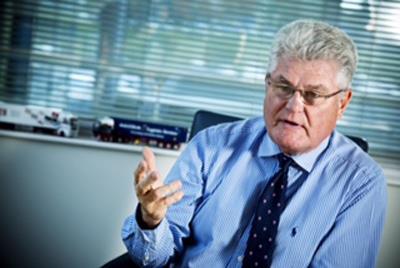Following on from my article regarding the discussions at the recent Decarbonisation Summit I have received opinions from a number of operators from both the haulage industry and vehicle service suppliers with regard to their respective views about how to achieve the net zero goals.

In reality it is the demand generated by the companies in the haulage sector and the ability of the vehicle supply side of the industry to support that demand that will determine the success or otherwise of meeting the 2050 goals.
There has been a lot of communication from the leading truck manufacturers with regard to their future products.
Electric HGV vehicles dominate the headlines but there are other discussions regarding the development of hydrogen-powered alternatives together with the potential use of HVO fuel that will support continued use of Euro-6 diesel engines.
To say that the industry is in a state of uncertainty is an understatement.
In 2006, 2010 and 2014 the industry had to deal with the introduction of Euro-4, Euro-5 and Euro-6 technology.
At the time these changes were considered major events yet by comparison to the challenges presented by net zero they were relatively simple.
The range of options in front of operators today are not only very comprehensive they are also very complex. The purchasing decisions will need to take into account not only the capital cost but a multiplicity of variables; vehicle weight, travel range, recharging, future residuals, funding term, reliability, insurance and tyre wear to name but a few.
Calculating both a realistic TCO and an accurate CO2 fleet footprint will become even more challenging. It is with this in mind that the opinions of two operators in the industry are worthy of consideration.
Iain Mitchell, chairman of Mitchell’s of Grangemouth and a leading Scottish haulier has expressed the following view:
“As a road haulier I want to do the correct thing by the environment but I honestly do not know what way to go. Do we go with electric just now (if we can get enough electricity?) or do we hold off and hope for a hydrogen option? Until I see all options I think it is impossible to make a decision.”
I am sure that Iain is expressing the views of many operators but the good news is that the industry has until 2040 to determine which will be the most effective business model.
Just as important is the view of a supplier to the haulage sector and Johanna Cooke, director and owner of leading truck and van service business A N Richards of Llangollen, has expressed the following opinion.
“As an owner of a commercial vehicle repair and maintenance dealership who works closely with transport operators, I feel that the way in which we achieve this reduction needs to be mindful of many factors including the affordability of new technology needed to make this reduction.
“We are currently in an age where traction rates are, in some cases, being reduced back to 2010 prices, operators are being forced to wait longer for payments which is causing casualties amongst the backbone of our industry. The added pressure of an increase in the initial cost of operation (in the form of an electric vehicle) may be more than many operators can take.
“Also the current infrastructure to accommodate the electric HGV’s needs serious consideration. In an industry where the uptime principle is key to its success any added downtime, due to charging or reliability issues will cause added pressure. We also need to ensure that before any new vehicles enter the market that dealerships are fully equipped to maintain these new vehicles including the space needed for the EV quarantine area.”
Both of these views are very relevant in today’s market and over the next two to three years we will witness many more changes and hopefully become more acquainted with reliable data upon which investment decisions can be made.
There are over 34,000 truck operators and 500,000 trucks operating in the UK so there is a lot of work to be done and a lot of CO2 to be reduced.
At the time of writing this article it is worth pointing out the views of the president of COP28, Sultan Al Jaber, who “said a phase-out of fossil fuels would not allow sustainable development, unless you want to take the world back into caves”.
There may, therefore, still be some merit in the continuation of fossil fuel powered transport until an effective, proven alternative can be found.
In the meantime increased use of fleet data management systems and improvements in fleet optimisation can also help in the challenge to reduce CO2 emissions and this will see the emergence of a number of AI software programmes to assist with that development.
Des Evans OBE, retired senior executive and co-author ’The road to zero emissions: The future of trucks, transport and automotive industry supply chains’













